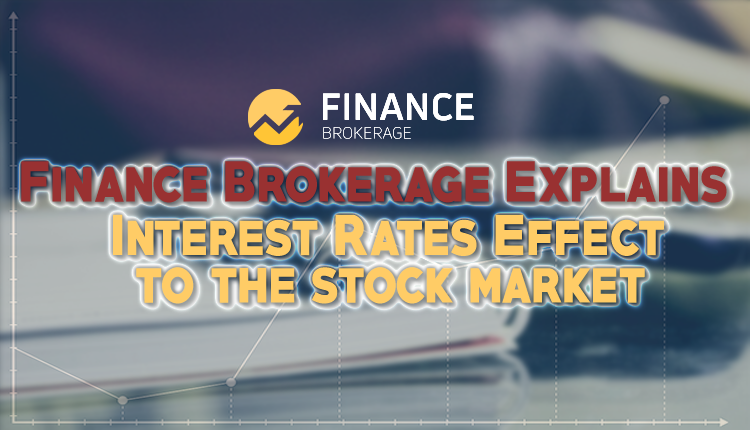
Finance Brokerage Explains: Interest Rates Effect to the Stock Market
The financial investment community is getting more attracted to interest rates. Basically, interest rates are the amount of money someone is liable for after using someone else’s money (for a good reason). Federal Open Market Committee (FOMC) watches and sets the federal funds rate, in which banks do borrow from or lent within their clients. It produces a ripple effect on the United States economy, mainly on the U.S. stock market.
Federal funds rate usually goes through a year or so upon increase or decrease in interest rates. Only after those long months, you could feel the changes in widespread economic. Upon changes, the market soon shows a response to the change immediately.
This post aims to provide an understanding of the relationship between interest rates and the stock market. This will help stock traders in understanding how interest rates affect the stock market. This will help them make a better financial investment decision.
What is the interest rate?
The interest rate is also known as the discount rate, the main reason behind federal funds rate movement. These are the rate depository charged for borrowing money from the Federal Reserve banks.
Effects of Interest rate increase
When federal funds rate increases, it doesn’t directly impact the stock market. Fact is the direct effect comes when borrowing money from the Feds, which is more expensive for the banks. But take note what we’ve said earlier, increase in federal funds rate brings ripple effect.
Financial institutions usually increase rates for their customer when borrowing money because of the increase. Clients are way affected in regards to their credit card and mortgage interest rates, particularly when these loans have a variable interest rate. The bills people need to pay for, when those become more expensive, families are left with lesser disposable income. Meaning, people are to spend lesser discretionary money affecting businesses and their revenues.
Interest rates & the stock market
Acknowledging the effect of the interest rate increase to the general public, it will surely affect the stock market. When a company cuts back on its growth or less profit, the estimated future cash flows will drop. That stated as interest funds rate goes higher so comes the price of the company’s stocks.
When companies experience such declines in stock prices, the whole market and a lot of investors will also decline to go further down. Companies low expectation in their cash flows, investors will not have much growth in the stock price appreciation. That makes stock ownership less attractive, furthermore investing equities could be view as risk become present without a shed of light from other investors.
Nevertheless, there are sectors benefiting from all of these in a price hike because they are to charge more for lending. That includes the banks, brokerages, mortgage companies, and insurance companies.


